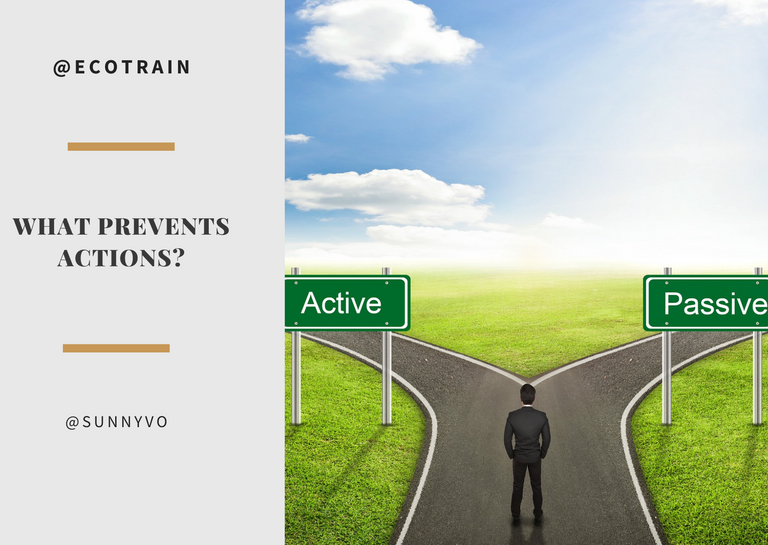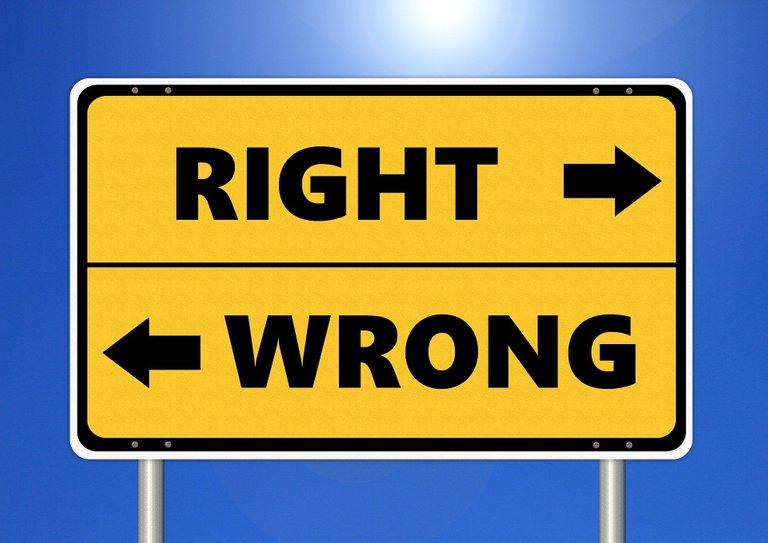We are powerful - @ecoTrain - What prevents actions?
"WHAT PREVENTS ACTION?"

It's a shame that this is the last topic about action. I really enjoy joining ecoTrain contest, especially this series since I found out about this community. The topics have been challenging, but also exciting, these are questions that require some serious thinking and clashing with my values, beliefs and identities.
Before discussing what prevents actions, perhaps we should look at the causes of what I like to call "wrong actions", What causes wrong actions.
First, let's have a look at a real incident in my country — Vietnam. In 2009, a monosodium glutamate producer discharged untreated waste into Thi Vai river, in Dong Nai province that is believed to be responsible for the heavily polluted main waterway.
This company was obviously aware of the disastrous impact it would have on the environment, yet they still went on with it. Why did they do it?
Many people said that it is the result of cost and benefit, the benefit was too great that they ignored the cost.
But I wonder if it is that simple.
I used to think that only when I do something, then it can be considered a right or wrong action until I learn that doing nothing or keeping silent is also considered a wrong action.
Why do many people choose to use disposable products instead of eco-friendly ones? Why don't you report that your friend cheat in the test?
We tend to choose what is convenient, instead of what is right.
Moral disengagement
I have recently come across this term in an online course about morality. Albert Bandura explains Moral disengagement is how people do harm to others and be able to live with themselves by disengaging from their moral self. He also suggests a lot of mechanisms of moral disengagement.
Some of these really help me understand and explain our behaviors.
One of them is "Diffusion of responsibility", which usually happens in a group when a person is less likely to take action to solve a problem as he or she thinks that they are equally responsible.
One example of this is the fight against climate change, set aside the political aspect, the world has not come to an agreement for years.
Blaming others and spreading responsibility leads to no actions.
What I like to bring to your attention here is the factors that affect moral disengagement.
One of them is the locus of control which could be categorized into internal and external. If your “locus” is internal, it means you believe in your own ability to control something, whereas the external is the belief that your life is controlled by external factors that you have no influence on it.
Can you guess which one is likely to take no action to change something that they disagree with?
If your answer is people with strong external locus, then you are correct.
As a teacher myself, I believe education plays a crucial role in this, we need to teach people to have a strong internal locus. When people think they are powerful, they are more likely to stand up, raise their voice and protect what they believe in.

sourcce
Another factor is moral identity. This is another psychological concept focused on the importance of morality to the identity of a person. When people are confused about their identities, it may prevent them to take action.
Final thought, though there are many factors that can affect people’s behaviors or actions, I think it is important to look into the problems and find many approaches to tackle them.
It is worth it to consider it from a psychological point of view, the lack of morality could be the biggest challenge we are facing in today’s society. If everyone has a strong internal locus, then we may have hope for a better world.

Really helful for me. Thank you for sharing !
I'm glad it could help 🙂
ooh wow! a totally new answer.. amazing.. i never heard of the phrase Moral disengagement before. but it sums up the issue really well! very nice, thank you for sharing!
Yeah, it's new to me too, I find it interesting as it explains many problems in our society.
Who knows it could be a moral problem 😀
Đáng sợ nhất là họ không biết mình sai, đó chính là lý do họ thờ ơ,vô cảm và im lặng. Có lẽ họ cho rằng nó không gây ảnh hưởng gì cho ai cả
đúng rồi em, ko biết mình sai đúng là sợ thật, nhiều khi không làm gì cũng là sai haha
Tùy hoàn cảnh với sự việc thế nào nữa c. Có trường hợp thì đừng làm gì lại thiên hạ được nhờ
nay mới thấy bài của Nguyên trên post winning để vô đọc nè. đúng là khi hiểu nguồn gốc của behavior r thì vấn đề được giải thích rất dễ hiểu luôn. Thanks for sharing!
Vì mới post hôm qua sát deadline luôn haha, thực ra cái moral disengagement là về đạo đức, nhưng lại có nhiều cái thấy đúng trong các trường hợp khác nữa 😆
haha mà thấy học hành dữ dội nha. mấy món này cũng hay nhưng bảo học thì lười lắm may ké đc tí idea trong bài này 😂
vì công việc thôi, mà thấy lâu lâu xài cũng được 😂
Congratulations @sunnyvo! You have completed the following achievement on the Hive blockchain and have been rewarded with new badge(s):
Your next target is to reach 600 comments.
You can view your badges on your board and compare yourself to others in the Ranking
If you no longer want to receive notifications, reply to this comment with the word
STOPSupport the HiveBuzz project. Vote for our proposal!
em rất mê những bài viết như thế này, cảm ơn chị đã chia sẻ ạ. Em sẽ đọc lại lần nữa và ngẫm 😇
Cảm ơn em, mấy bài này kén người đọc lắm, nhưng chị thích nên vẫn viết.
Nếu em quan tâm có thể search thêm về "moral disengagement" 😁